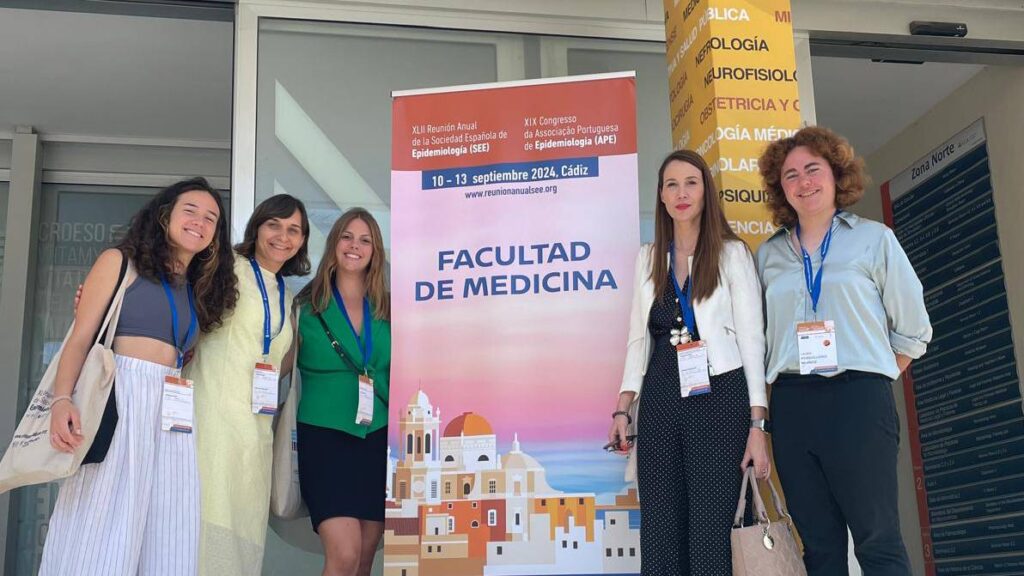For yet another year, the Tobacco Control Unit (TCU) actively participated in the Annual Congress of the Spanish Society of Epidemiology (SEE), held in Cadiz from 10-13 September 2024. Several members of the team presented key studies and projects, reflecting the unit’s commitment to the fight against smoking and the promotion of smoke-free environments.
One of the highlights was the smoke-free homes project, which featured two presentations. The first, led by Isabel Barroso, ‘Advice call within a brief intervention to create smoke-free homes: a pilot study’, evaluated a telephone intervention to help families create smoke-free homes. Preliminary results of the pilot study showed that the telephone helpline increased motivation and supported behaviour change, with participants rating its usefulness at 4.8 out of 5. It was also the most useful element of the intervention for 50% of smokers.
The second study related to this project was presented by Olena Tigova, titled ‘Promoting smoke-free homes among families with children in Barcelona: a pilot study’. This work showed that 70% of the participants tried to implement smoke-free homes, although only 17% managed to create a smoke-free home two weeks after receiving the intervention, showing the need for more support in this type of intervention.

On the other hand, results were presented from the IMAGINTAB-TV study “Analysis of tobacco content in TV programmes in Spain 2021”, led by Armando Peruga and presented by Olena Tigova. More than 75,000 minutes of programmes from 18 of the most watched TV channels were analysed. It found that 2.4% of broadcasting time during the 5 hours of prime time contained tobacco-related images, mostly in feature films. In addition, 31% of tobacco images were broadcast during child protection time, highlighting the need to regulate TV content and protect young people from exposure to tobacco images.
Two papers were also presented on the DuCATA-GAMCaT project ‘Study for the characterisation of cannabis and tobacco use in people in treatment for cannabis’. Judith Saura presented the preliminary results of the gamified application, highlighting that 85% of the study participants used tobacco mixed with cannabis, suggesting the existence of cross-dependence between the two substances, a relevant issue in addiction prevention. Meanwhile, Cristina Martínez presented the co-creation process for the development of a gamified web application to monitor tobacco and cannabis use among people with cannabis use disorders, promoting self-management and treatment adherence.
On the other hand, Manuel Badino presented a scoping review on the digital determinants of health and their relationship with the social determinants of health. The review highlighted how digital literacy, connectivity and access to technology can exacerbate health inequalities. Of the 145 articles reviewed, 33 addressed the conceptualisation of digital determinants and 15 made a clear link to social determinants, particularly in vulnerable populations.
Finally, Laura Perdiguero presented the progress of the PEACHD project, which conducted a systematic review of integrated brief interventions to prevent NCD risk factors in vulnerable populations. The study, which analysed 1,589 articles, identified barriers such as limited access to programmes and fear of stigma, and highlighted facilitators such as a person-centred approach and psychological support. The findings will be used to develop an innovative intervention to be tested in vulnerable populations in the Czech Republic, Poland and Catalonia.
These projects reflect the unit’s ongoing efforts to reduce the impact of tobacco on society and promote healthier environments.
